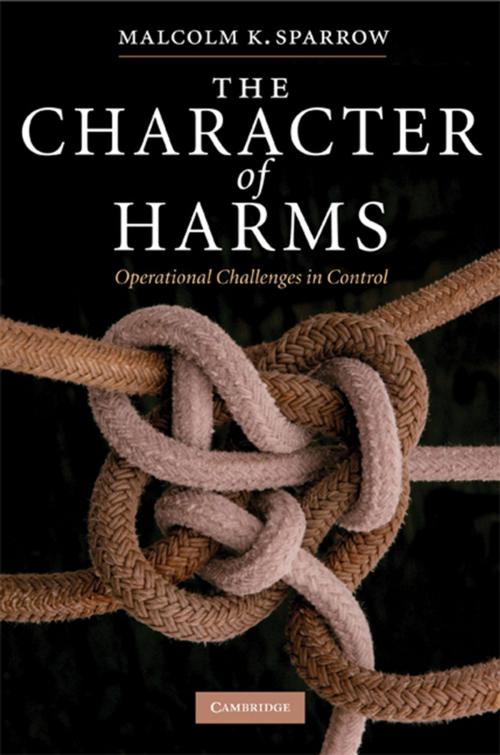The Character of Harms
Operational Challenges in Control
Business & Finance, Human Resources & Personnel Management, Organizational Behavior| Author: | Malcolm K. Sparrow | ISBN: | 9781107714021 |
| Publisher: | Cambridge University Press | Publication: | April 17, 2008 |
| Imprint: | Cambridge University Press | Language: | English |
| Author: | Malcolm K. Sparrow |
| ISBN: | 9781107714021 |
| Publisher: | Cambridge University Press |
| Publication: | April 17, 2008 |
| Imprint: | Cambridge University Press |
| Language: | English |
How should we deal with societal ills such as crime, poverty, pollution, terrorism, and corruption? The Character of Harms argues that control or mitigation of 'bad' things involves distinctive patterns of thought and action which turn out to be broadly applicable across a range of human endeavors, and which need to be better understood. Malcolm Sparrow demonstrates that an explicit focus on the bads, rather than on the countervailing goods (safety, prosperity, environmental stewardship, etc.) can provide rich opportunities for surgically efficient and effective interventions - an operational approach which he terms 'the sabotage of harms'. The book explores the institutional arrangements and decision-frameworks necessary to support this emerging operational model. Written for reflective practitioners charged with risk-control responsibilities across the public, private, and non-governmental sectors, The Character of Harms makes a powerful case for a new approach to tackling the complex problems facing society.
How should we deal with societal ills such as crime, poverty, pollution, terrorism, and corruption? The Character of Harms argues that control or mitigation of 'bad' things involves distinctive patterns of thought and action which turn out to be broadly applicable across a range of human endeavors, and which need to be better understood. Malcolm Sparrow demonstrates that an explicit focus on the bads, rather than on the countervailing goods (safety, prosperity, environmental stewardship, etc.) can provide rich opportunities for surgically efficient and effective interventions - an operational approach which he terms 'the sabotage of harms'. The book explores the institutional arrangements and decision-frameworks necessary to support this emerging operational model. Written for reflective practitioners charged with risk-control responsibilities across the public, private, and non-governmental sectors, The Character of Harms makes a powerful case for a new approach to tackling the complex problems facing society.















